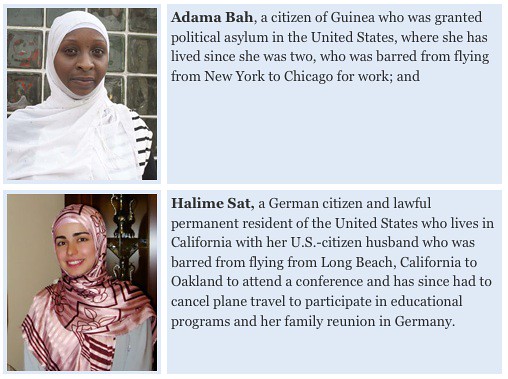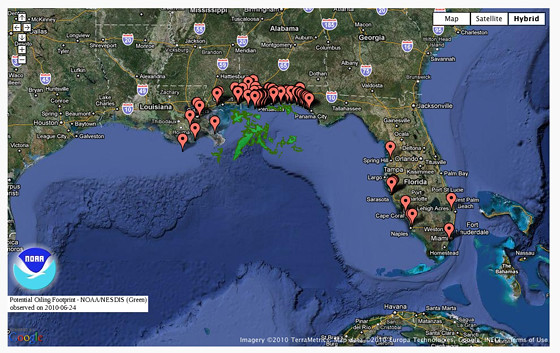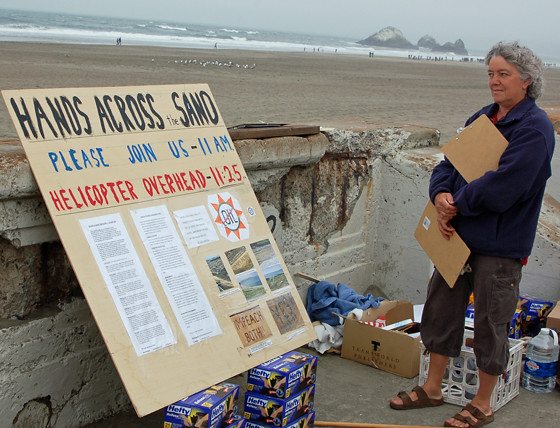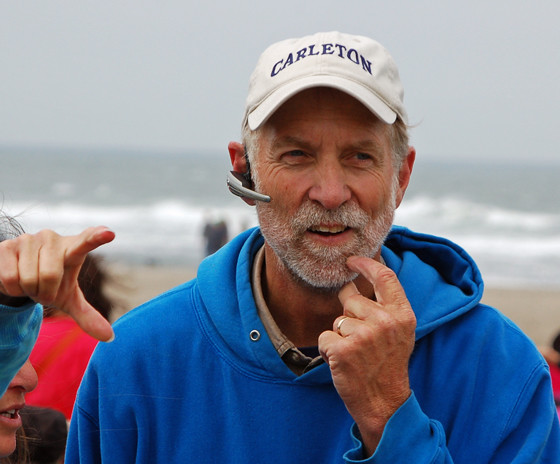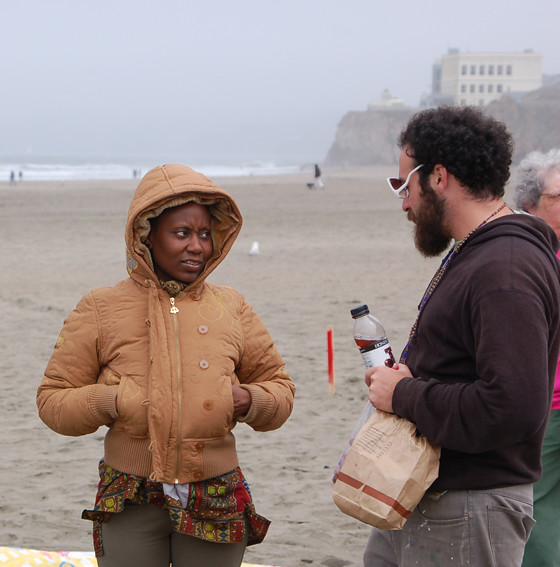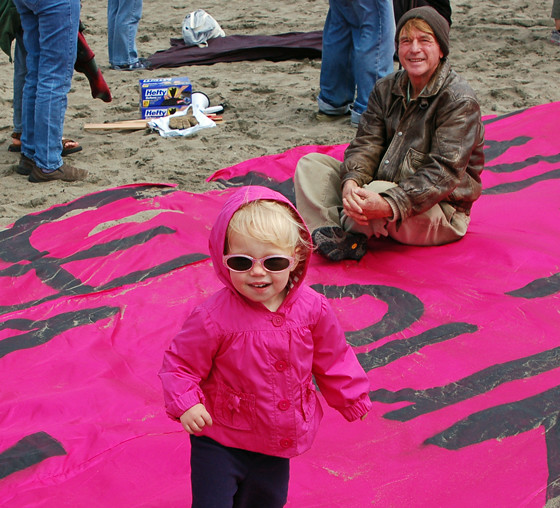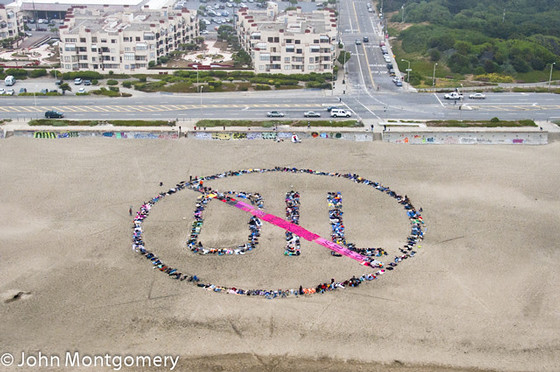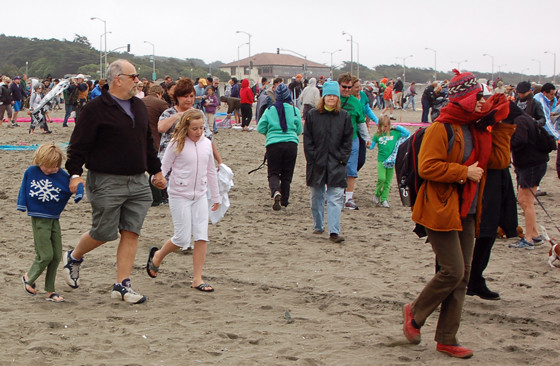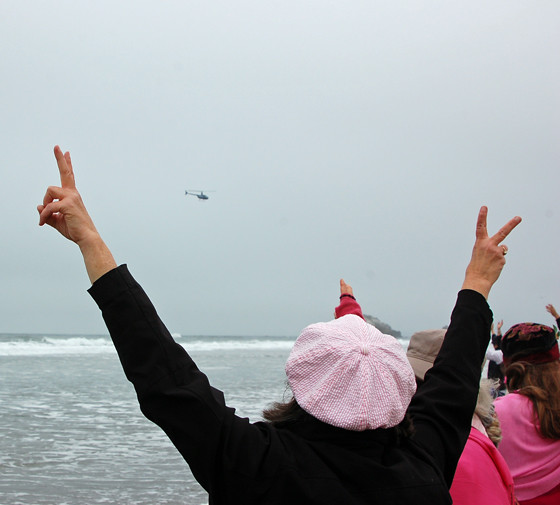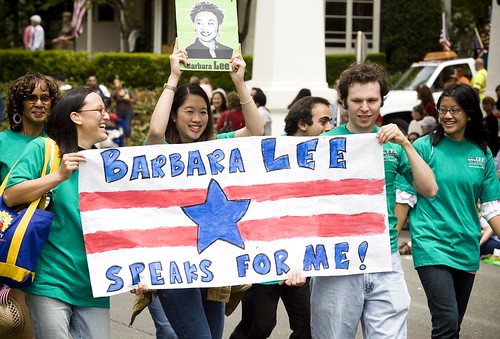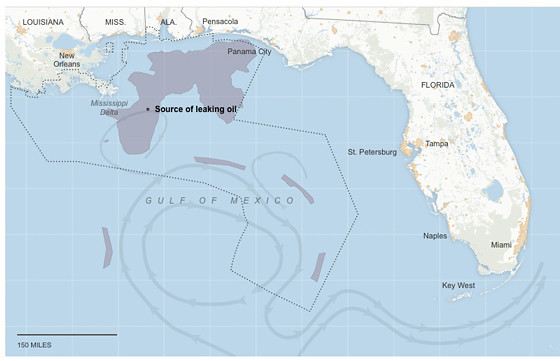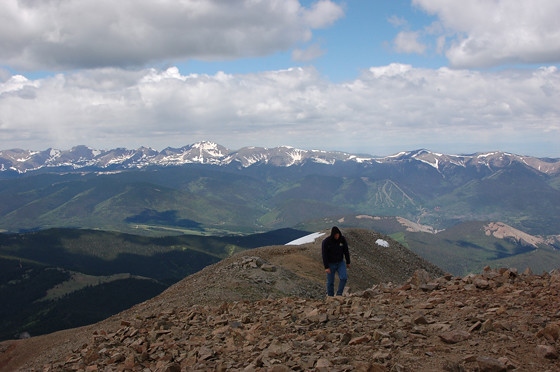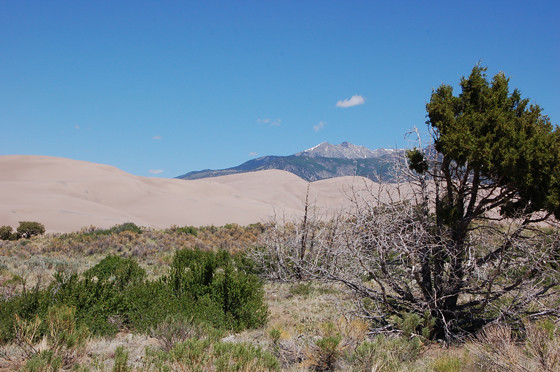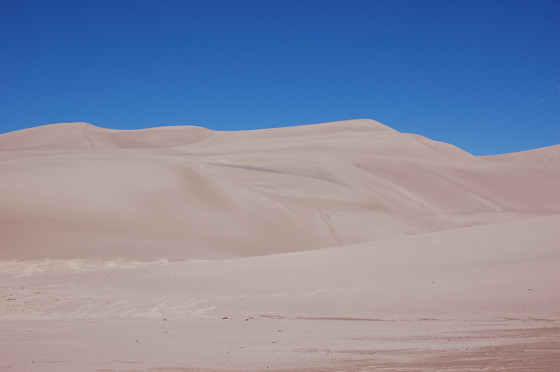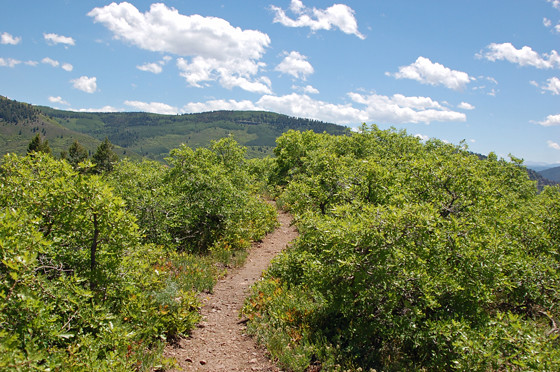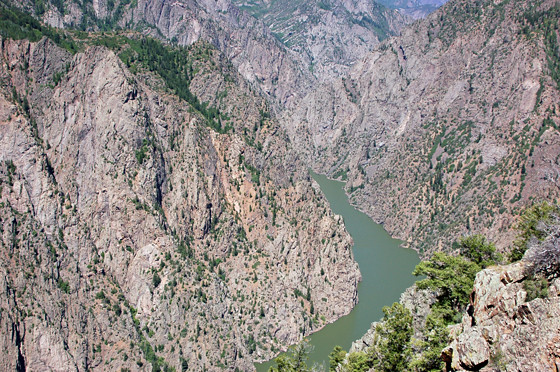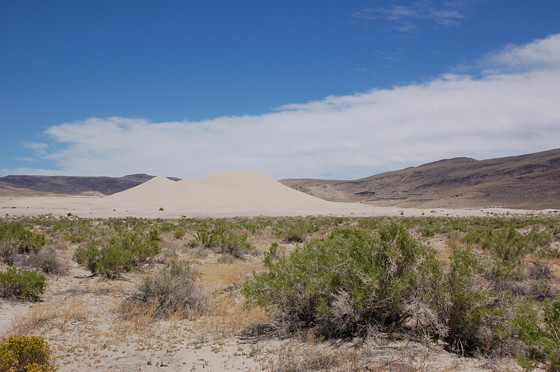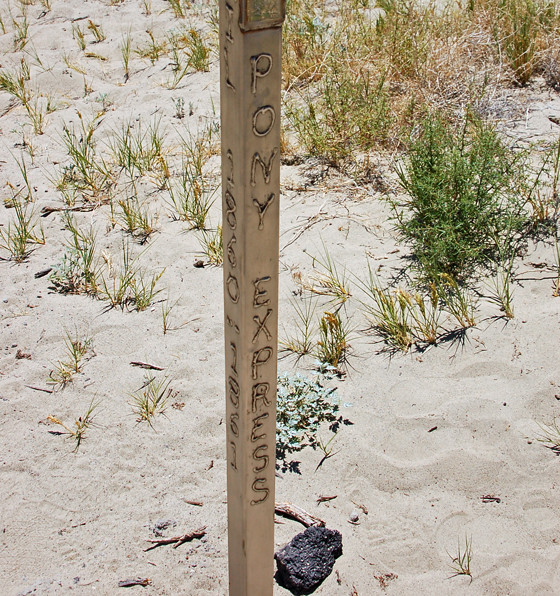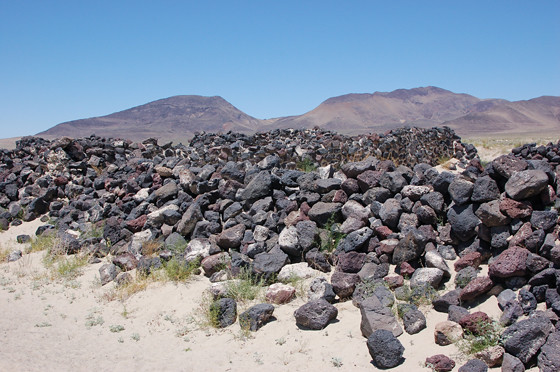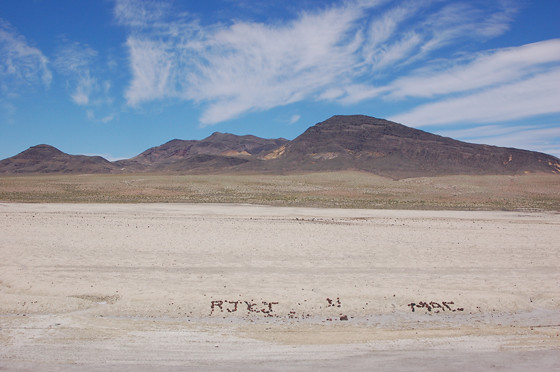Alerted by such organizations as
MoveOn, the
Older Women's League, and the
Gray Panthers, on Saturday I looked in on the beginning of an odd event in Palo Alto, California.

An outfit called
AmericaSpeaks had decided that 8:00 am on a Saturday in an obscure corner of this West Coast outpost of Wall Street opulence was a suitable time and venue for one of the two dozen sites for a "National Town Hall Meeting" on how to cut the federal deficit.
Since AmericaSpeaks is funded by the Peter G. Peterson Foundation and various other fat cat luminaries, organizations that defend ordinary Americans suspect it of acting as a propaganda shop for further rip offs of our taxes to comfort the wealthy. These "non-partisans" are engaged in
an agenda setting exercise. If they can convince enough of us that U.S. fiscal problems are caused by greedy Social Security recipients and old people on Medicare who won't die quietly, they think they can distract the vast majority of us from looking for more money for government from the obvious source: people who have more money than they need.
To that end, the
Peterson Institute, ostensibly so distressed by deficits, lobbies against even regulations that would prevent multinational corporations from abusing foreign tax credits. Peterson's outfit may not have an allegiance to Democrats or Republicans, but it clearly has a higher loyalty: to rich people.
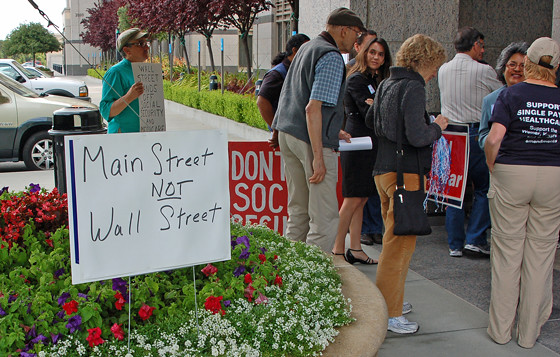
A small engaged crowd turned out in Palo Alto, determined not to let this charade pass without notice. Their signs showed them to be supporters of Social Security and Medicare for All.
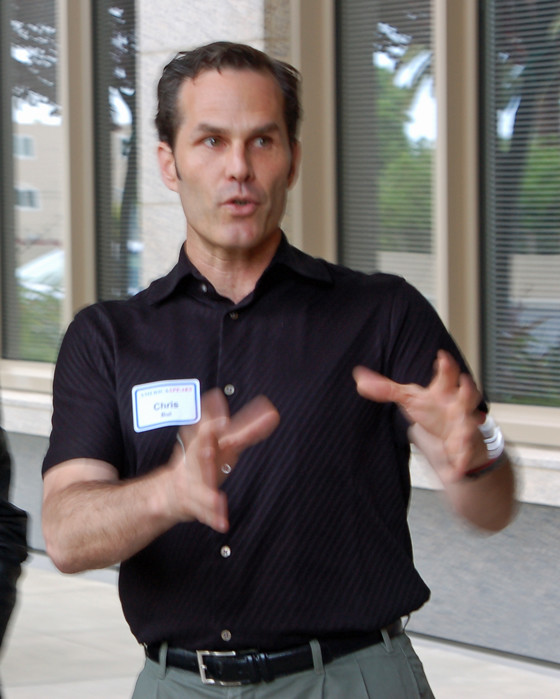
AmericaSpeaks organizers provided a flack, one Chris Bui, to engage the MoveOn group. Mr. Bui touted his experience in facilitating "trans-partisan" gatherings. I always wonder whether people like this, obviously happily ensconced among the comfortable, think those who have to live off the leavings of their comfort ought to act. Submissive and baffled by their betters, I suspect.

Fortunately, this was not a crowd much cowed by glib talkers. Mr. Bui was asked why there were only two sites in all of California, home to some 43 million diverse people, while Wyoming's 600,000 people got two sites? He explained that some members of AmericaSpeaks have connections .... Nothing against Wyoming (it's lovely), but it seems a little over-represented in the councils of this outfit.
Unlike most of the people I was standing among, I didn't go into the "town meeting" -- nor, when I left, was it clear how many of those outside would get in. I had a lot of other things to do on Saturday, like
spell out "NO OIL" on a beach.
One of the side benefits of AmericanSpeaks holding their dog and pony show at this wealthy venue was the elders who managed to find it were not the kind of people who are easily bamboozled. Nor are they the kind of people who want to keep their benefits and screw future generations. (That's for the Tea Party types clinging to their Medicare while denouncing government.) I left confident that they'd hold up our end of things.
***People who want to impose their (bad) solutions to problems they have defined often challenge opponents to come up with alternative solutions.
Any number of smart economists, most notably Nobel Prize winner Paul Krugman (who unlike the Peterson set
did see the housing bubble that led to the financial crash of 2008) think this bunch's definition of the problem is simply wrong.
The deficit can wait until the economy is back on its feet. He insists in the linked article that deficit hawk policies are driving us into a Third Depression.
If we do want to cut the deficit,
economist Dean Baker has offered three equitable suggestions:
For item number 1: how about a financial speculation tax? Wouldn't the bond markets be impressed by seeing Congress crack down on the Wall Street hot shots whose recklessness helped fuel the housing bubble? That one would show real courage given the power of Goldman Sachs-Citigroup gang.
As a second item, Congress could go after the pharmaceutical industry. By 2020 we are projected to be spending almost $500bn a year on prescription drugs. We pay close to twice as much for our drugs as people in other wealthy countries and about 10 times as much as the drugs would cost if they could be sold in competitive market without government patent monopolies.
Suppose Congress decided to pay for the clinical testing of drugs directly and then allowed all new drugs to be sold as generics. This could save taxpayers hundreds of billions of dollars a year. Wouldn't the bond markets be impressed by seeing Congress stand up to the pharmaceutical industry?
As a third item, suppose Congress revisited plans for a public insurance option. The Congressional Budget Office projected that this would save over $100bn by 2020 and certainly much more in future decades. Wouldn't the bond markets be impressed if Congress stood up to the insurance industry?
Baker doesn't even mention my preferred solution to U.S. government over-spending and over-borrowing (that's what the deficit is). We could stop fighting expensive, unnecessary wars around the world and cut back the bloated military. There's lots of money there if we need it. Bring it home!
UPDATE: Dean Baker came up with the best line about these meetings yet: As they say at America Speaks, everything is on the table, except reforms that would hurt powerful industry lobbies.

